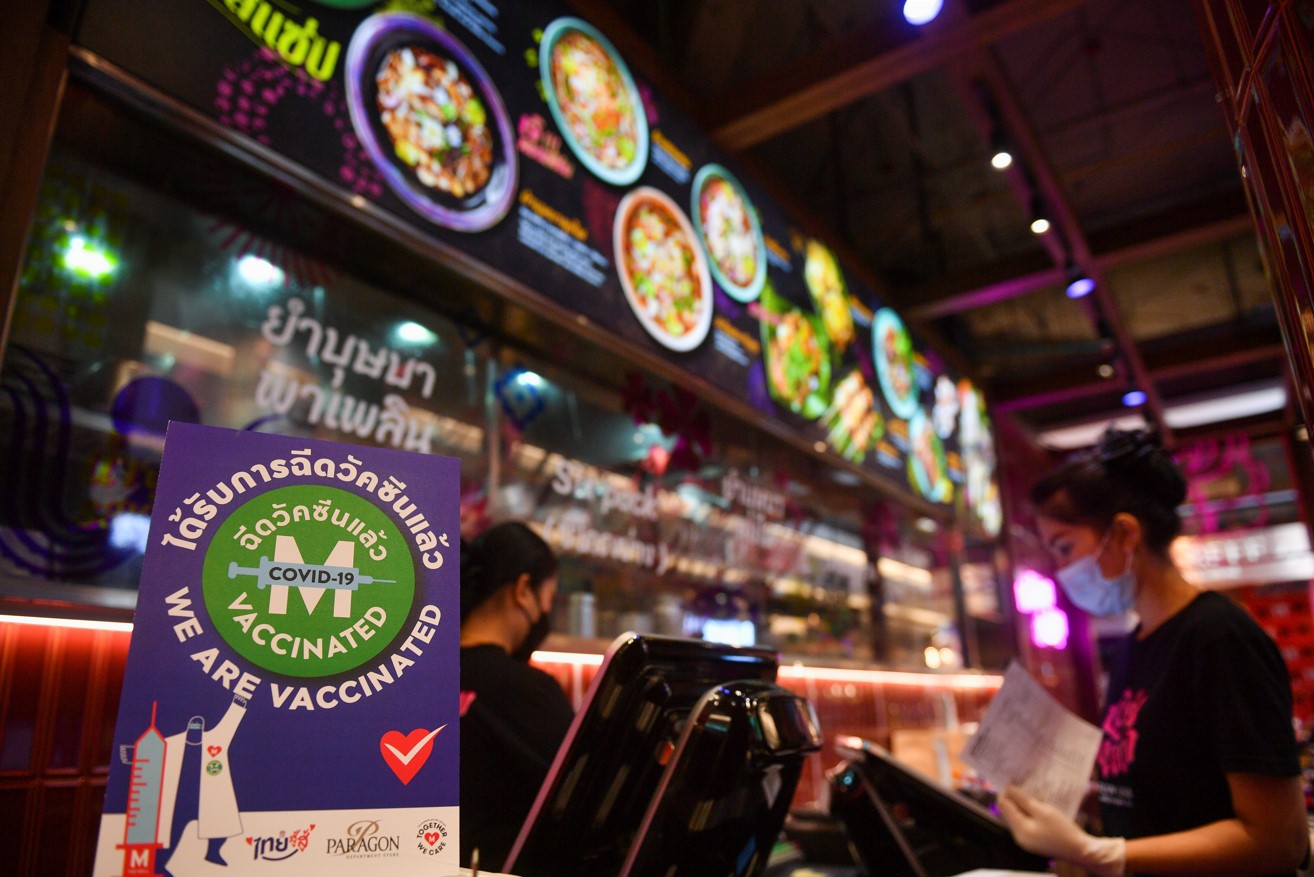
Warnings as Southeast Asia’s biggest economies ease COVID-19 curbs

By Matthew Tostevin and Stanley Widianto
BANGKOK/JAKARTA (Reuters) – As Indonesia and Thailand start to ease COVID-19 curbs after seeing case numbers fall, health experts say cases of new infections could rise again with vaccination rates still low.
After containing the coronavirus better than much of the world last year, Southeast Asia has turned into a global epicentre in recent months with the arrival of the virulent Delta variant.
Although case numbers are still rising fast in most of the region, Indonesia and Thailand, which have its largest economies, have started to lift curbs on dine-in restaurants and shopping malls to ease the economic pain of their lockdowns.
Indonesia reported 10,534 new cases on Tuesday, five times fewer than its peak in mid-July, while Thailand reported 14,802 new cases on Wednesday, down 37% from its mid-August peak.
However, experts said relaxations carried dangers with a low level of vaccination and a shortage of testing, with rates of positive tests often above the 5% recommended by the World Health Organisation (WHO).
“We are definitely concerned around the reopening without meeting all the criteria proposed by the WHO,” Abhishek Rimal, Asia Pacific Emergency Health Coordinator at the International Federation of Red Cross and Red Crescent Societies, told Reuters.
“Now with the Delta variant, which is highly transmissible, and the low vaccination rate, we could very well see a surge of COVID-19 in days to come.”
Indonesia has recently had a positive test rate of 12% and Thailand 34%.
“Surveillance is not that great, we still need to be careful,” said Tri Yunis Miko Wahyono, a University of Indonesia epidemiologist.
Indonesia has recorded more than 4 million coronavirus cases in total and more than 133,000 deaths from COVID-19 since the start of the pandemic. Thailand has reported 11,841 deaths and 1.2 million cases.
The two countries both have first vaccination rates at around 30% with Indonesia having fully vaccinated 17% and Thailand 11%. Their capitals, Jakarta and Bangkok, have much higher levels of vaccination.
In Jakarta and some areas on the populous Java island, restaurants inside shopping malls could have a 50% dine-in capacity, and shopping malls could stay open until 9 p.m., while factories are permitted to operate at 100% capacity.
Bangkok and 28 other provinces listed as having the most severe outbreaks can similarly reopen dine-in restaurants at a capacity between 50%-75%, with opening hours capped at 8 p.m., the same as shopping malls.
“The situation is getting better because many people are getting vaccinated and they are being more cautious,” said restaurant customer Orrapin Peenanee, queuing in Bangkok.
The economic benefits of easing lockdowns were understandable, said Dale Fisher, a senior infectious disease expert at the National University Hospital in Singapore, but he stressed that they also must vaccinate their citizens faster.
“As you ease off the lockdowns, how much sort of punishment can you take before you have to bring a lockdown back in and be and be stronger? The answer’s in the vaccine,” he said.
(Reporting by Stanley Widianto in Jakarta, Kate Lamb in Sydney, Matthew Tostevin and Jiraporn Kuhakan in Bangkok; Writing by Patpicha Tanakasempipat; Editing by Angus MacSwan)

















POST COMMENTS (0)